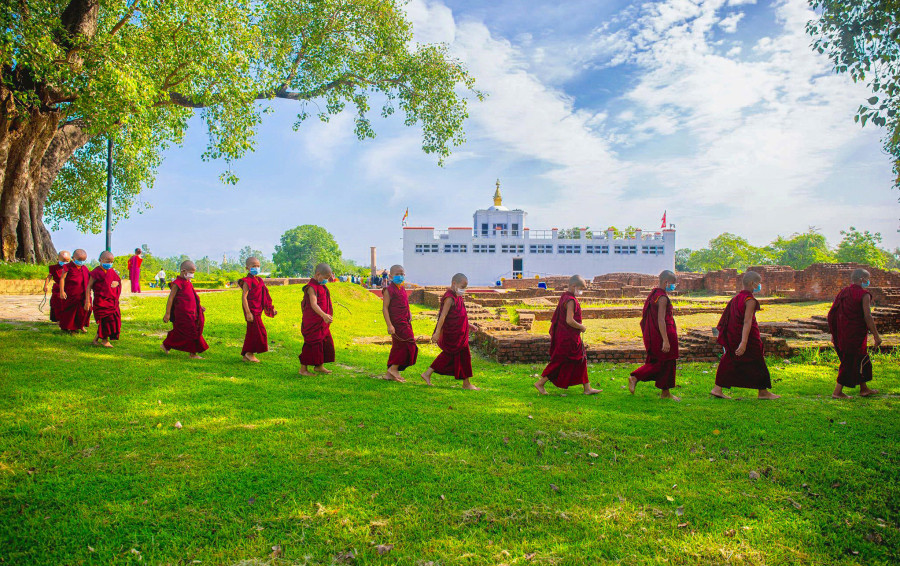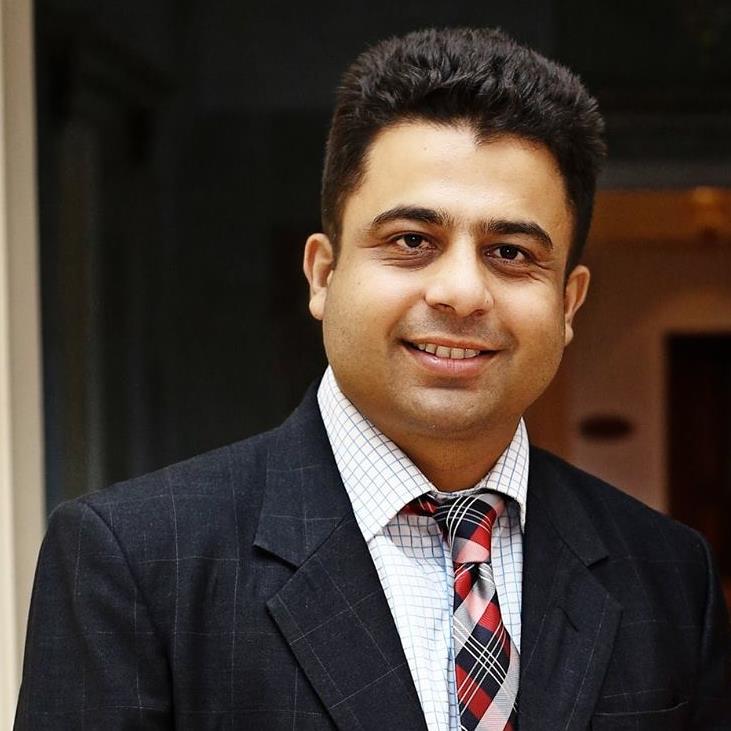Columns
Tourism for the soul
The world will be flocking to Nepal to recharge their spiritual batteries in the post-pandemic era.
Basu Gautam
Apart from changing how we work, learn and interact, the Covid-19 pandemic has changed how we travel today and in the future. Being grounded during this difficult period reminded us of the importance of travel for our mental health and personal growth. We love travelling because, deep inside, we are adventurous beings. Although some of us crave adventure more than others, the hunger for fresh and exciting experiences, it seems, is ingrained in our DNA. We are meant to seek the unknown and escape to new places as it leaves us with experiences that polish our self-confidence, emotional resilience, social bonding and world view, to say the least. There is something special about embarking on a journey to new places, learning new skills, gaining new experiences and returning to the familiar surroundings that makes us more humane and empathetic towards others.
Soul liberating experience
Whether it is a brief weekend trek to the hillside of Sundarijal near Kathmandu or a mountain bike challenge over rugged mountains in upper Mustang, the venture is a truly soul liberating experience beneficial to us physically, mentally and spiritually. As an avid traveller myself, I have often found myself returning home with a more relaxed mindset and increased self-confidence after every trip, short or long. The experiences gained during the tour and sharing those trials and triumphs with others have helped me understand the human psyche's depth.
The Covid-19 experience has also prompted us to reflect deeply on our quality of life, health and wellness, and most importantly, our spiritual well-being. Our relationship with spirituality has a strong influence on our personal beliefs, attitudes, behaviours, social interactions and emotions. Our spiritual wellness can be instrumental in finding our life’s meaning and purpose, and going deeper into understanding our values, beliefs and morals that guide our actions.
Against the background of a global pandemic that is likely to be one of the worst crises to face our world in generations, spiritual tourism in Nepal has the potential for major growth as the world opts to come out of hibernation. With the expanded vaccination drive globally and a significant decline in Covid-19 cases, the world seems ready to travel again. Like the hippies who travelled from London to Kathmandu seeking Shangrila and mysticism, the world would want to be flocking to Nepal once again to recharge their spiritual batteries in the post-pandemic era. It seems the hippie trail of the 1960s and 1970s is ready for reincarnation as youngsters will be weaving mindfulness and yoga experiences in the Himalaya once the world emerges from the pandemic.
Spiritual retreats and custom-designed off-grid destinations will be a new trend in the post-Covid travel itinerary. Spiritual travel has been explored in Nepal since the 1960s, and we have the opportunity to capitalise on that strength to fulfil soulful experiences that the world aspires for in our natural hinterlands and World Heritage Sites.
Putting aside the devastating decline in tourism due to the pandemic in the last two years, the travel industry in Nepal was witnessing a boom unlike at any other time in the past. The fascinating blend of Hinduism and Buddhism in Nepal, along with our exceptionally beautiful natural landscape, makes us the perfect destination for those seeking inner peace and outer paradise. We are also a deeply spiritual nation and possess destinations like Lumbini, the historic birthplace of the Buddha, one of the most important spiritual figures in the history of humankind.
Buddhism is a religion practised worldwide by an estimated 535 million people representing 8-10 percent of the world population. Because of its spiritual significance, Lumbini holds vast prospects for tourism growth, not just for Buddhists from across the world, but also for other peace-loving people. If Davos of Switzerland, a tiny resort town in the Swiss Alps, has the potential to become home to heads of state, captains of industry and others each year during the World Economic Forum for global interactions, Lumbini, a UNESCO World Heritage Site also can be developed into a platform for notable global gathering to discuss issues ranging from nuclear proliferation to the challenges of climate change. Like Davos, Lumbini needs a well-crafted promotional strategy that emphasises the idea of “Hub for Global Dialogue and Cooperation” and not just a pilgrimage site.
Inner peace tourism
More than any other sector of the world economy, tourism felt the most distressing pinch due to the pandemic crisis worldwide. The global economic turmoil resulting from the Covid-19 situation has put extra pressure on people’s psycho-physical state of health. Although wellness and inner peace tourism is a relatively new trend, we can, with proper planning, build a post-pandemic tourism industry that will see an influx of tourists looking for refuge to relax not just their body and mind, but souls too. Yoga, meditation and spiritual retreat tourism are what the tourists in the post-pandemic era will be increasingly seeking to rejuvenate themselves.
Yoga and meditation helped the world alleviate mental stress and improve psychological well-being during the peak of the pandemic. Against this background, we can provide the services of spiritual well-being and natural retreats as the world slowly heals after the pandemic. The world is ready for spiritual travel following the pain of the pandemic, but the question is whether we are ready to offer that soulful detox to the world. Spiritual tourism is the next big thing, and there is no other ideal destination than Nepal in the world.




 17.12°C Kathmandu
17.12°C Kathmandu















